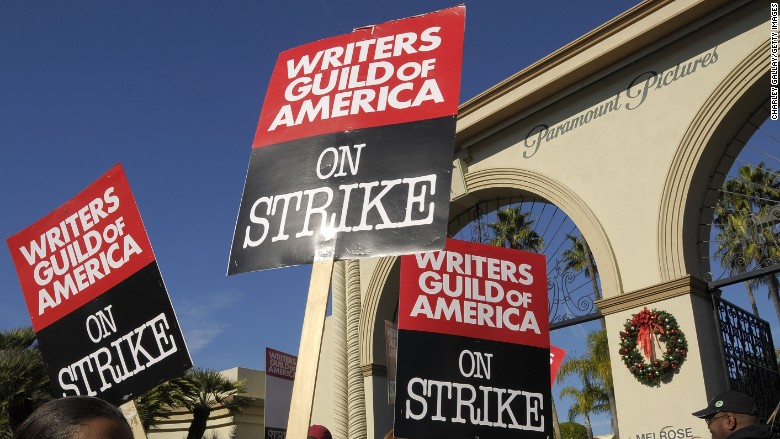
Hollywood's talent guilds have long fretted about leaving money on the table in negotiations with studios. Many remember when they failed to recognize the early value of DVDs, thus not fully sharing in that bounty.
This year, however, they came armed with perhaps greater leverage than usual, as studios seemed to accept that in a time of inordinate and fast-paced change, there are benefits associated with stability.
SAG-AFTRA, which represents actors and performers, agreed to a new three-year contract Tuesday, one that in many respects mirrors gains recorded by the Directors Guild of America and Writers Guild. (Although parts of all three contracts overlap, there are concerns unique to each of the groups.)
Yet while writers' and actors' negotiations went down to the wire -- and indeed, even past their deadlines -- there was a sense after the former that the entertainment industry's conglomerates were eager to avoid the uncertainty that goes with a strike.
In the past, that hasn't always demonstrably been the case. At times, the studios have sought to send a message to talent, one predicated on the fact that they can withstand the pain of a work stoppage longer, and have more tools -- including unscripted television shows -- to weather the pain associated with one.
Granted, the memory of the 2007 writers strike is still fresh, and part of the studios' willingness to barter doubtless had to do with the profits they're wringing from original programming even in the face of declining ratings. With networks owning more of their shows, they can cash in on deals with streaming services and international sales, offsetting losses from more traditional platforms.
Related: Hollywood crisis averted: Writers reach deal with studios
The same largely goes for the movie business, where a decline in U.S. box-office this summer is being softened by the robust performance of many films overseas, making the bottom line on fading franchises like "Transformers" and "Pirates of the Caribbean" more favorable.
For all that, the competitive landscape and methods of distribution are changing so quickly that letting the wheels of production grind to a halt feels riskier. With network ratings already down, consumers finding creative ways around anteing up for cable subscriptions and fewer people seeing movies in theaters, why tempt the fates by inviting them to test the waters on alternatives that might hasten such erosion?
When the writers reached their deal, the Los Angeles Times reported that top studio executives were directly involved in the negotiations, which paved the way for concessions that became part of the agreement. An anonymous executive was quoted saying the studios were "sympathetic" toward the Guild's issues, adding, "It wasn't the studios who did this to the writers, it was just that the world had changed."
The new contracts have bought the studios another stretch of labor harmony, with the increases the guilds recorded reflecting that Hollywood's major players are currently doing quite well. But it's also a tacit admission that it's wise not to rock a boat that's already grappling with leaks in a number of areas.
For now, that means that the guilds and studio negotiators can enjoy a breather, but only a temporary one. Because while labor peace means a little extra peace of mind, what the entertainment world will look like come 2020 is anybody's guess.


